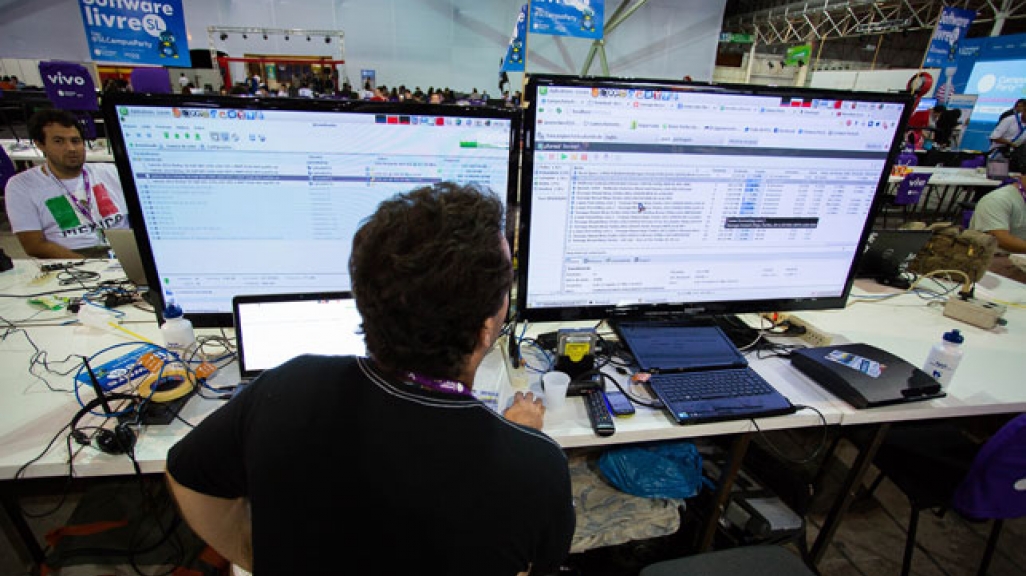Explainer: What Is Brazil's Internet Constitution?
Explainer: What Is Brazil's Internet Constitution?
Learn about this landmark legislation passed by the Chamber of Deputies on March 25.
Brazil’s Marco Civil da Internet, also known as the “Internet Constitution,” is a major piece of legislation intended to create a framework for rights and responsibilities of Internet users and providers. Currently awaiting a vote in the Senate, the bill stands to change how the Internet is regulated in Brazil. Learn more about how the legislation developed and why it’s important.
How did the bill come about?
This legislation was developed based on public discussions with experts and the Brazilian public. “Like the Web, Marco Civil has been built by its users—the groundbreaking, inclusive, and participatory process has resulted in a policy that balances the rights and responsibilities of the individuals, governments, and corporations who use the Internet,” wrote Tim Berners-Lee, the creator of the World Wide Web, in a statement of support.
In 2009, the Brazilian Internet Steering Committee—a non-profit that brings together public officials, academics, and the private sector involved in Internet services—held a series of meetings and produced a proposal for the governance and use of the Internet in Brazil. The same year, a site was set up to allow Internet users to provide their own comments and proposals, and public debates were held throughout the country. In August 2011, Congressman Alessandro Molon, a Workers’ Party representative from Rio de Janeiro, introduced the bill in the Chamber of Deputies.
What does the bill contain?
The three main pillars of the legislation are privacy, net neutrality, and legal liability.
Privacy: The bill guarantees the privacy of online communications; only court orders for criminal investigations are the exception. Internet service providers must provide clear information in contracts about protection of personal data. Users’ Internet connections cannot be cut off, unless they fail to pay for the service, and the quality of paid Internet service connections must be maintained.
However, Internet privacy advocates oppose one provision. The legislation determines that Internet providers must store IP addresses and the times that users connect to the Internet for one year. This must be done anonymously, without information about the user, but this data can be made available with a court order. Internet companies, such as Google, must store browsing history for six months.
Net neutrality: One of the most important elements of the bill guarantees net neutrality, which ensures Internet service providers and the government cannot restrict users’ access to content, websites, or Internet-based services, nor can they interfere with how consumers use the Internet. The bill establishes that telecom companies are not permitted to sell packages that distinguish price based on the content accessed by users. For example, companies cannot charge higher prices for users who stream videos and live TV, and they cannot change connection speeds based on the content users access.
However, the legislation gives the president, the Brazilian Internet Steering Committee, and the National Telecommunications Agency the power to make exceptions to net neutrality in the case of emergencies, such as cases of public security or health.
Liability: The Marco Civil contains protection against intermediary responsibility, meaning that Internet service providers will not be liable for content published by users. Providers will only be liable if they fail to comply with court orders to remove offensive content. This element of the bill is important because court decisions about content removal and liability vary widely, since there are no specific laws around this concept. Globally, Brazil had the second highest number of court-ordered removal requests on Google in 2013.
What impact did the U.S. National Security Agency scandal have on the bill?
After it was introduced in 2011, the bill suffered multiple delays, as well as resistance from telecoms to the net neutrality measure. But when the news broke last year that the U.S. National Security Agency spied on millions of phone calls and emails in Brazil, the state oil company, and the president herself, President Dilma Rousseff decided to propose changes to the Marco Civil. In September 2013, she requested that the bill be changed to an “urgent” status, which would require Congress to vote on it within 45 days. She also requested an addition to the bill, requiring foreign Internet companies like Google and Facebook to store Brazilian user data in the country.
With Internet privacy at the forefront of public debate and the bill now on a fast track, the legislation gained momentum. Avaaz, an international organization that hosts petitions, received 344,000 signatures in support of the Marco Civil. After several delays due to disagreement on the local data storage requirement and net neutrality, the Chamber of Deputies brought the bill to a vote on March 25. But for the final version of the bill, legislators agreed to eliminate the provision that would require foreign companies to store Brazilian user data locally.
Where does the legislation stand?
On March 25, the Chamber of Deputies approved the bill by near-unanimous vote. The legislation now moves on to the Senate. If the upper house passes the bill in its current form, it will be sent directly to President Dilma Rousseff. Otherwise, the modified bill will return to the Chamber of Deputies. Because the bill is labeled as urgent, the Senate will have 45 days to vote on the bill once it is delivered to the upper house—which is expected to be within the next few days. Senate President Renan Calheiros vowed legislators would analyze the bill in “a very short space of time.”







